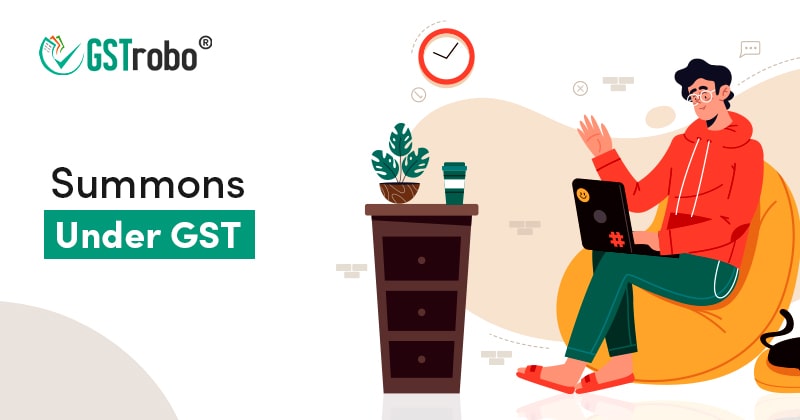Summons under GST – Duties and Rights of a Taxpayer
GST officers have the authority to issue summons to any taxpayer requiring their presence. Various businesses, workers, and key management personnel have been summoned by tax authorities to appear before GST officials in several cases. The person who receives the summons needs to appear before the GST authorities. When they receive it, they get nervous and don’t know what to do with them. As a result, the purpose of this article is to inform readers about their duties and rights about summons under GST.

What is Summons under GST?
A summons is an order issued by a court or a government administrative body to any individual to appear in court or in the pertinent office in person. Section 70 of the CGST Act, 2017 authorizes GST officials to call anybody to appear before to record statements or present documents during an investigation. Failure to appear before the officer concerned may result in a penalty.
Who has the Authority to Issue Summons?
If you have received a summons under GST, you must determine who issued it. Under GST, audit authorities cannot issue a summons. The Directorate General of GST Intelligence has the authority to wield this function. DGGI is the highest-ranking investigative agency that investigates violations of the GST.
Duties and Rights of a Taxpayer in Case of GST Summons
Duties
Summons under GST is as important as court processes under the IPC. As a result, you should take caution while interacting with tax officials. Officers of the tax authorities may request the disclosure of papers and take statements from workers, directors, or key management personnel in such processes.
Unlike remarks made in front of police officers, statements made in front of GST officials is usable against the taxpayer as evidence. In a case, the Supreme Court ruled that because customs officials are not police officers, any comment made in front of them can be used as evidence. Similarly, Telangana High Court ruled that GST officers are not police officers, any testimony made before them had evidential weight.
Rights
To avoid harassment by GST officials, a taxpayer must know of his or her rights. This section will go through how taxpayers can defend themselves against GST summons.
The CBIC issued detailed regulations to regulate summons proceedings, including a rule stating that summons should be used only as a last resort if the taxpayer refuses to cooperate and should not need appearance at odd hours. Further, the summons should not contain aggressive language that might cause the taxpayer worrisome. It should be self-explanatory.
Apart from this, as a taxpayer, you should be aware of several other important rights too.
Right to Retract Statement
Officials tend to put unnecessary pressure on taxpayers, making them feel frightened and forcing them to give incorrect information. In such cases, taxpayers can withdraw the wrong statement and replace it with a proper one. This protection protects taxpayers against tax authorities taking action against them because of improper submissions.
Right to Remain Silence
When a taxpayer is unsure about a question asked, the taxpayer has the option of remaining silent. This is a protected right granted to a taxpayer. According to the Supreme Court and the High Courts, remaining silent is not an offense.
Right to Cross-Examine the Statement
The GST authorities may try to influence the individual who has been summoned by referring to negative remarks made by a third party, such as a coworker, a vendor, or a company’s dealer. In such circumstances, the taxpayer against whom the statement was made might cross-examine the other individual to verify his statement.
Other Rights
When writing or giving a statement the taxpayer is not expected to recall everything. This is the reason why he is free to refer to Books of Accounts or other papers.
The Bottom Line
A taxpayer should know his or her rights and duties under GST when it comes to a summons. It will keep taxpayers from getting into difficult positions or tackling such situations. There have been instances where tax officials harassed taxpayers as they were unaware of their rights and duties. If you receive a summons as a taxpayer, be careful to check if a proper officer issued it. If necessary, seek expert help.
